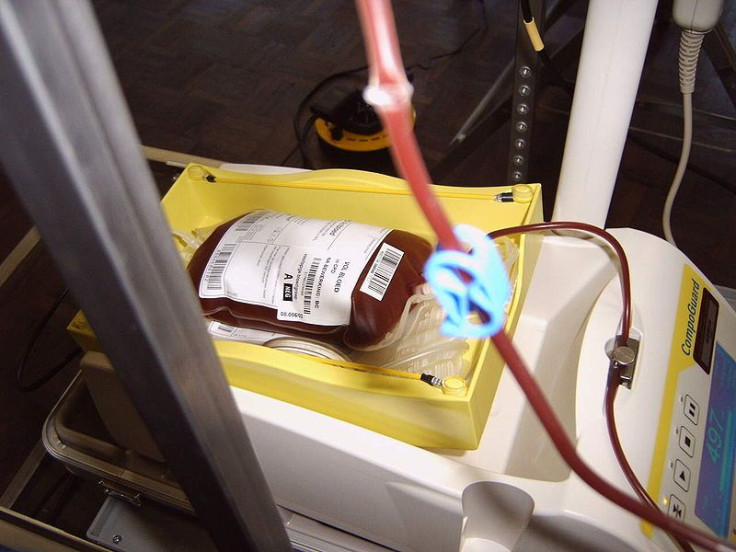Nearly 1,000 People Could Die From Contracting 'Silent' Mad Cow From Blood Transfusions

British officials believes up to 1,000 people could die from the human variant of mad cow disease as a result of tainted blood transfusions.
Creutzfeld-Jakob disease, or vCJD, which is the human form of mad cow is likely dormant in 30,000 people in Britain, based on the government's Health Protection Analytical Team report.
Hospital officials are warning the death toll could increase to nearly five times the current estimate of 176, that's approximately 880 people but it could be more.
The dormant variant could develop into the full-blown vCJD in the carriers.
Former Labour Health Secretary Frank Dobson urges "everything humanly possible should be done to develop a blood test."
"There is no room at all for complacency," Dobson told The Daily Telegraph. "With a blood test, you would be able to screen every potential donor. If that screening showed the incidence was higher than thought then maybe you would do it for the whole population."
Mad cow disease, labeled bovine spongiform encephalopathy, or BSE, is a central nervous system disease that strikes cattle. BSE became a global scare in 1986 that began in the United Kingdom livestock feed, where suppliers fed the cattle infected cow and sheep parts. It ultimately prompted leaders to order millions of cows be slaughtered in 1989 to prevent people from contracting vCJD from infected beef.
However, one in 2,000 Britons likely carry the silent form that could become vCJD and one study from 2012 confirmed that the prevalence of the dormant variant is twice as high as originally thought by experts.
Nearly half of the 1,000 potential cases could be a result of those who already had blood transfusions, while approximately 580 cases are from those who could contract the disease from future blood transfusions. The study recommends that young donors born after 1996 are the safest to recruit because they wouldn't have eaten the disease-ridden beef.
Although officials are saying a blood test screening clears donors who may not have the disease, a spokesman for the Department of Health told The Telegraph that government encourages "people of all ages to give blood" because they have "one of the safest blood supplies in the world."
They're adding that this study was conducted to consider ways of the reducing potential risk of contracting the disease via blood transfusion.
CJD is a degenerative brain disease, that normally affects one in every 1 million people globally. The United States has nearly 200 cases ever year, according to the National Institutes of Health. The onset could appear at age 60, some of the symptoms include loss of memory, changes in behavior and disruptions to visual or all modes of coordination. As it progresses, the person could become blind or have dementia, among other symptoms.
The causative agents of the disease are abnormal forms of proteins called prions, which are misfolded in a way that prohibit enzymes from breaking them down. This allows them to accumulate in the brain and cause neurodegenerative decline.
"There is no evidence of any UK clinical cases of vCJD being linked to a blood transfusion given after 1999," the spokesman added. "In fact there have been no new cases in the UK for more than two years."



























